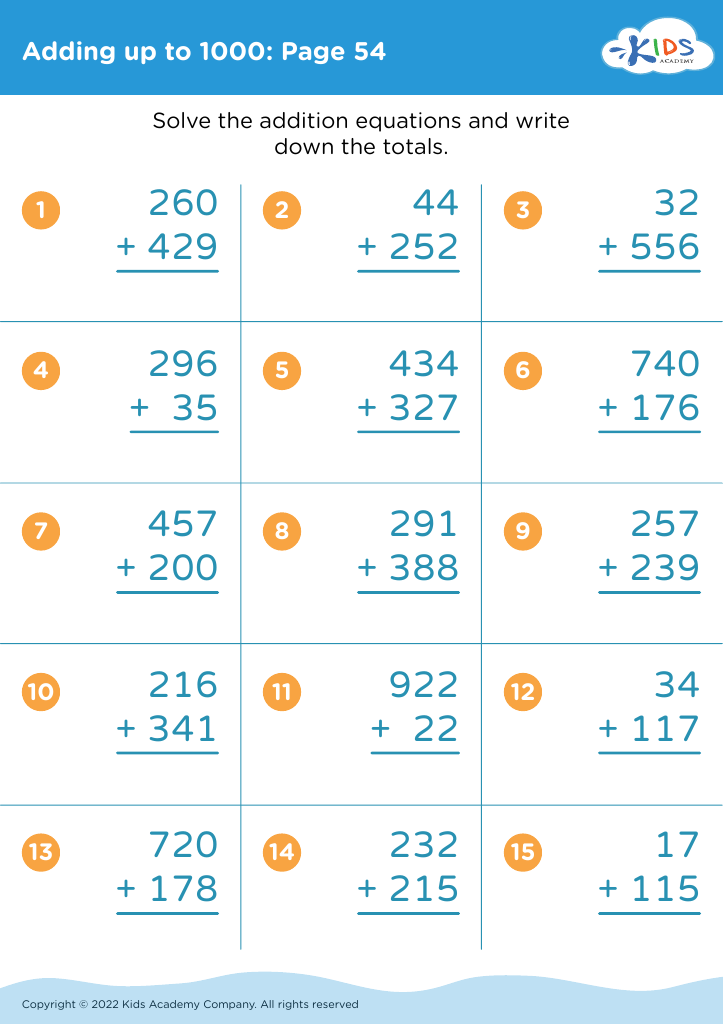Practice subtraction Adding up to 1000 Worksheets for Ages 5-7
3 filtered results
-
From - To
Discover our engaging Practice Subtraction Adding up to 1000 Worksheets, designed specifically for ages 5-7. These printable worksheets help young learners build essential subtraction skills while fostering a love for math. Through a variety of fun, interactive exercises, children will practice subtracting numbers up to 1000, enhancing their problem-solving abilities and boosting their confidence. Perfect for classroom or at-home learning, these worksheets support children's educational journey with clear instructions and captivating visuals. Help your child master subtraction and lay a strong foundation for future math success with Kids Academy's expertly crafted resources.
Parents and teachers should prioritize practicing subtraction and addition up to 1000 for children ages 5-7 because it lays the essential foundation for future mathematical understanding. At this impressionable age, children are developing cognitive skills and the ability to grasp numerical concepts quickly. Mastering basic arithmetic operations such as addition and subtraction equips children with problem-solving abilities that are crucial for everyday tasks and academic success.
By focusing on numbers up to 1000, kids become familiar with larger quantities, enhancing their number sense and enhancing their ability to handle more complex mathematical concepts later on. It promotes logical thinking and boosts confidence as children see their incremental progress. Consistent practice helps solidify these skills, alleviating math anxiety and making math a subject of interest and competence rather than fear.
Moreover, early proficiency in fundamental math principles often correlates with greater overall academic achievement. Skills gained through practicing addition and subtraction help in developing focus, improving memory, and fostering independent learning. Parents and teachers play a crucial role in creating positive, engaging learning experiences, which support lifelong academic enthusiasm and practical life skills. Investing time and effort in these foundational skills will yield long-term benefits as the child progresses through school and beyond.














